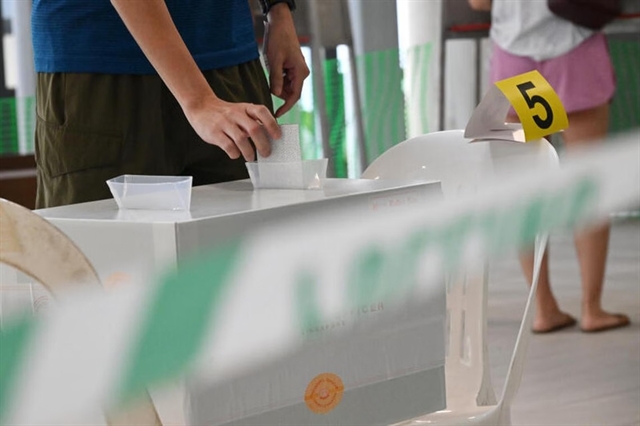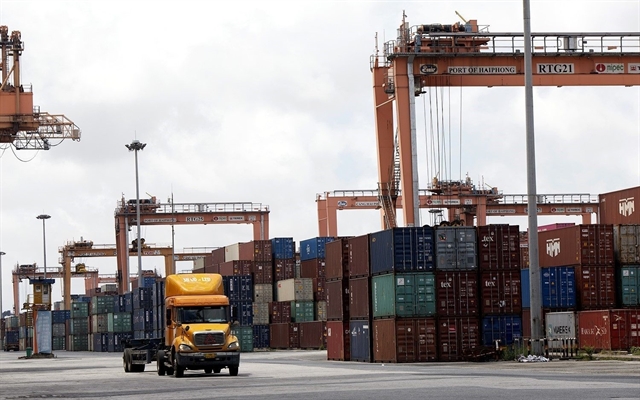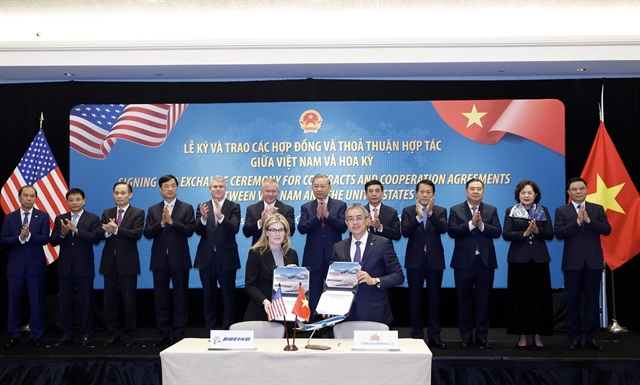 World
World


|
| Voters at the polling station at a HDB pavillion located at Blk 208, Woodleigh Link, on May 3. — THE STRAITS TIMES/ANN Photo |
SINGAPORE — The 2025 General Election saw the lowest voter turnout by percentage since 1968, with 92.47 per cent of the 2,627,026 registered voters in contested constituencies casting their ballots in Singapore on May 3.
Political observers said the likeliest explanation for the lower turnout in 2025 was that Singaporeans had already made travel plans before the election was called, taking advantage of the May Day holiday that fell on a Thursday.
They noted that even if more voters had turned up, it may not have altered the final outcome as there is no way to know for certain how those who did not vote would have leaned.
The 92.47 per cent figure, which the Elections Department (ELD) recently released, does not include the votes cast at overseas polling stations or by post, which will be added to the final count no earlier than 10 days after Polling Day.
Of the 18,389 registered overseas voters in the 2025 General Election, 1,152 did not participate in the ballot as they were registered to vote in Marine Parade-Braddell Heights GRC, where the People's Action Party (PAP) won in a walkover.
Historically, overseas voter turnout has hovered between 60 per cent and 80 per cent.
However, even if the remaining 17,237 eligible overseas voters had all cast their ballots abroad, the overall voter turnout percentage in 2025 would stand at 93.13 per cent.
This is lower than the 95.81 per cent turnout in 2020 when the election was held during the COVID-19 pandemic; 93.7 per cent in 2015; and 93.18 per cent in 2011.
The lowest ever voter turnout by percentage for parliamentary elections in Singapore was in 1968, the first general election since the country’s independence.
Then, 91.83 per cent of eligible voters showed up to cast their ballots, but there were only seven contested seats out of 58, as the now-defunct Barisan Sosialis had boycotted the polls.
On whether a higher turnout could have changed the election results, especially in tighter races, observers said this is purely speculative.
Dr Mustafa Izzuddin, a senior international affairs analyst at Solaris Strategies Singapore, said there is no way to know for certain how those who did not vote would lean if they were at the ballot box.
“It is interesting that the turnout is lower than in previous elections. But I think every election should be looked at on its own terms,” he added.
Associate Professor Eugene Tan, a political analyst and law don at the Singapore Management University, said the takeaway is that every vote matters. This applies to spoilt votes as well, he added.
Based on the ELD’s tally so far, there were a total of 42,829 rejected votes at the close of polls on May 3, or 1.76 per cent of the total ballots cast.
In comparison, there were 45,822 rejected votes in the 2020 General Election, or 1.8 per cent of the total ballots cast then.
Voting is compulsory for Singaporeans aged 21 and older, and those who do not vote will have their names removed from the Registers of Electors.
Those with valid reasons for not voting, however, can apply to restore their names without a fee. Some acceptable reasons include being overseas on holiday, or medical issues such as illness.
Undergraduate Basile Chen, 26, who flew to Bangkok on May 2, was among those who already made travel plans before the Writ of Election was issued on April 15. Chen, who has never voted, also missed the 2023 Presidential Election as he was on an overseas exchange programme at the time.
The East Coast GRC resident, who has been following the 2025 campaign closely, said it was unfortunate that he was unable to participate in the ballot.
“The right to vote is fundamental in a functioning democracy, and it would have been nice to have had my views accounted for by taking part in this election,” he said. — THE STRAITS TIMES/ANN




